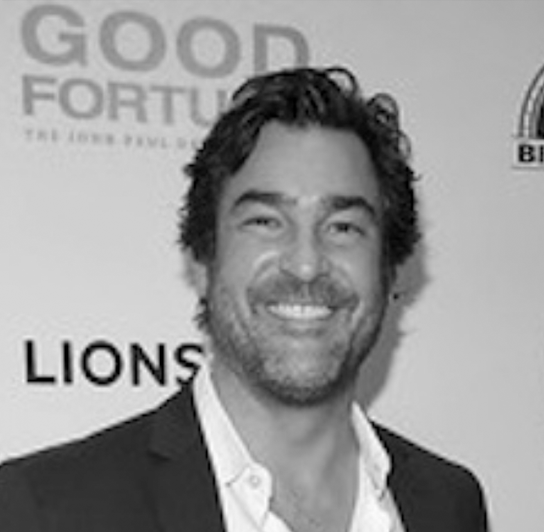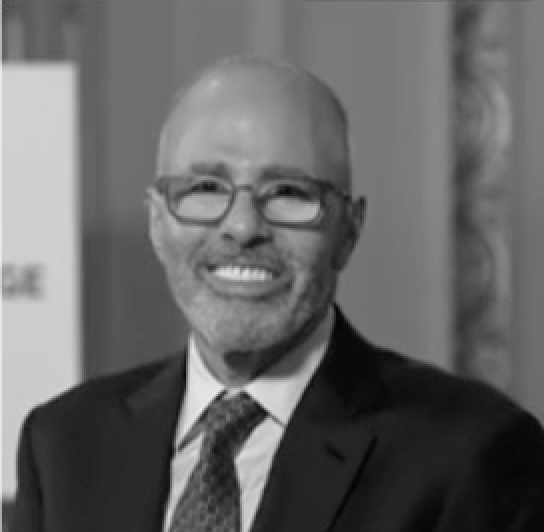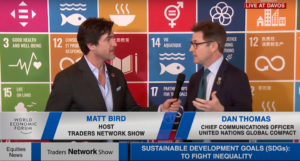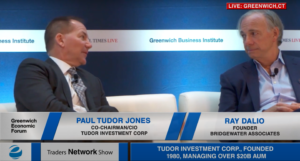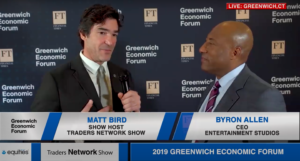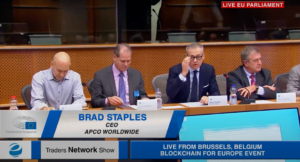Nassim Taleb Talks Skin in the Game: Building Wealth Through Risk and Volatility – Greenwich Economic Forum
Contributed by: Show Editorial Team
Nassim Taleb discusses the necessity of having skin in the game
Gillian Tett, Editor at Large at the Financial Times interviews Nassim Taleb, Scientific Advisor for Universa Investments on capital market at Greenwich Economic Forum (Greenwich, CT)
Say you wanted to remove all the risk from your life. How would you do it? You’d sterilize your environment and stay in bed. But then what would happen if, say, the next day, you rode on a crowded subway car in Tokyo?
“How many seconds would you survive?” asked Nassim Taleb, who presented this scenario to the 2019 Greenwich Economic Forum audience during a chat in which Taleb was interviewed by Gillian Tett, an editor at The Financial Times.“Three seconds? Four seconds? Five?”
The point was that if your body isn’t accustomed to fighting off germs, it’ll succumb to the first threat it faces. Taleb’s larger message was that the same principle regarding risk applies to business.
“The route to safety is not necessarily the route that has the least amount of volatility,” said Taleb, a distinguished Scientific Advisor at Universa Investments, as well the author of multiple books, including the 2018 book Skin in the Game, the fifth installment in Taleb’s Incerto, which includes philosophical essays on uncertainty that began with Fooled by Randomness in 2001. “Typically, the metric for a healthy company is one that has a lot of volatility. It’s the opposite of stable.”
While many people might assume that companies that don’t take on a lot of risk are the companies set up best for success, Taleb argues it’s actually businesses that are unafraid to expose themselves to risk that are the healthiest. These risk-taking companies, he argues, are best prepared to survive.
Taleb’s thesis, which he delves into more in Skin in the Game, is that avoiding risk is a path to failure. He argues that the most effective leaders—be they politicians or CEOs—take on similar risk to their constituents or customers. By extension, the most successful businesses or systems of government must assume risk, as well. Otherwise, the result is hypocrisy that’s bound to be exposed and toppled, Taleb says.
Think back to the Byzantine Empire, he suggested. Emperors fought alongside their armies, instilling respect by putting their lives on the line. People appreciated that, Taleb said. It offered a certain kind of faith in society. Today, “wars are led like computer games,” Taleb said, with leaders hiding safely in bunkers as soldiers die in deserts.
Similarly, Taleb said too many modern governmental institutions are run by bureaucrats who set policies that don’t affect their own lives. This is inherently unjust, and Taleb said people won’t sit idly by.
“People in the street are upset with a system that makes no sense to them,” he said. The populism that has exploded among Western democracies—be it the feeling that fueled the Brexit vote or the sentiments that won Donald Trump the presidency in 2016—is rooted in the fact that people are angry with their lives being run by strangers who don’t have to go through what they are going through, Taleb said.
For the hedge fund managers and financial experts in the audience, Taleb said the message was simple: “Don’t recommend. Tell me what you own.” In other words, clients deserve to see what skin their hedge fund managers have in the game, because those personal investments show the truth about what that manager thinks.
For the investors at the forum, it would no doubt feel risky to be that transparent with a client. But, as Taleb said, risk is a true sign of health.
PR and Media By: CommPro Worldwide
Link to original article: Here
(Written by Andrew Waite; Editing and revisions by Nicole Liddy)
All rights reserved to the Traders Network Show. No part of this publication may be reproduced, distributed, or transmitted in any form or by any mean including; photocopying, recording, or other electronic or mechanical methods, without prior written permission of the publisher, except in the case of brief quotations embodied in critical reviews and certain other noncommercial uses permitted by copyright law. For permission requests, write to the publisher addressed “Attention: Permissions Coordinator”

